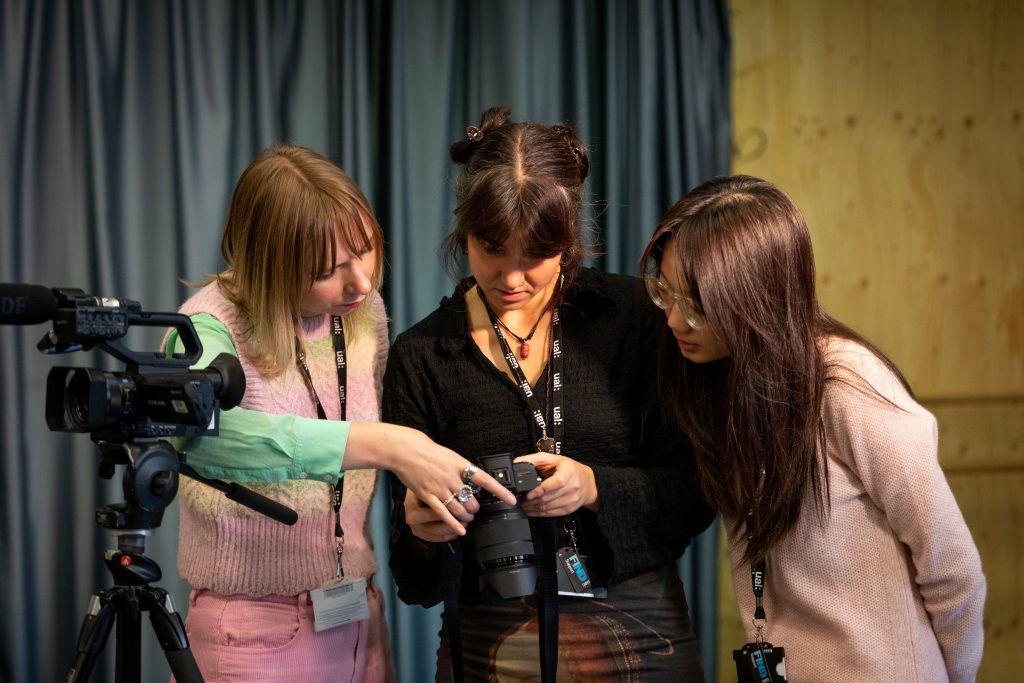Reflection on Second Reading Task

The second text that I read on the course was Michelle Salaman’s (2018) Drawing Laboratory: Research Workshops and Outcomes. I was drawn to this as I loved the practice based approach, the materiality of the research and the exploration of memory through arts connects to my work in intergenerational settings, particularly when making film projects with older adults living with dementia. I am also interested in this idea of drawing being a ‘core skill’ within arts education. Coming from a screen based and performance led practice I don’t fully agree with this sentiment, however I think it poses an interesting question about how art is taught, what are the expectations, how does a foundation in the ‘tools’ of our craft aid experimentation, skills development and learning. What is lost when we don’t bring the core to the fore?
Within my own teaching practice on the MA Performance: Screen course at Central Saint Martins, Unit 1 is all about giving the students a grounded practice based learning experience to reinforce some of the core principles of traditional filmmaking practices, starting with sound, then cinematography, production stages and editing, including both historical, theoretical and practical workshops. The goal is to create a shared language, a set of skills that aid the students understanding their craft and the tools available to achieve their ideas, so that they can then begin to expand their practice by bending, breaking or reimagining the rules. Within my own experience as a student on my BA at CSM, I had to teach myself many of the technical elements of filmmaking as this wasn’t offered on the course I studied on, and I remember how frustrating it felt at the time. The focus had been on ideas, but I found myself in the frustrating place where my ambition outstripped my technical ability. As an AL, this is an issue I have heard many students raise on various courses, and so when I had the opportunity to design Unit 1 on MA Performance: Screen as a lecturer, I felt passionately that this technical training should be integrated into the design of the unit. I’ve found that students who have sometimes joined the course later, after Unit 1 has finished, (such as transfer students from other courses) do not have as much confidence in their craft, and this sometimes limits their ability to develop their ideas further. Reading this text, I’m considering how I could reintroduce some of this core practice at different stages of the course, so that students who join at later stages and those who would benefit from refreshers can continue to revisit the fundamentals of practice.
I am interested in the use of physical activity in pedagogy and kinaesthetic learning. This feels like familiar territory coming from a film, performance, and social practice background, where operating cameras, playing games and physicality are inherent. It was fascinating to read how Salaman developed the workshops, and I was particularly impressed with the co-curricular engagement and invitation to learn beyond the set boundaries of students courses. As a result of this reading and reflection, I have spoken with my course leader about the possibility of teaming up with the technicians in the film department to offer a ‘core practice’ workshop each term, open to all students on the course. We have discussed integrating this into an after school cinema club that I run with students called ‘Expanded Cinema Club’ where students and I co-curate a programme of works that demonstrate inspiring examples of screen based practices. Many of these events include screenings and artist talks, and we have discussed the possibility of adding some practice based workshops to enhance the learning in these workshops through kinaesthetic learning.
References:
Salaman, M. (2018) Drawing Laboratory: Research Workshops and Outcomes.
Leave a Reply